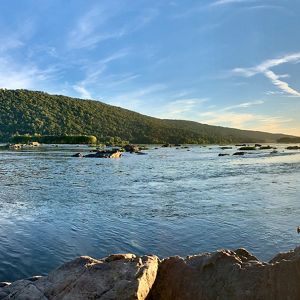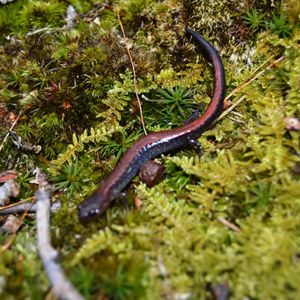Description
Overlooking the town of Altoona, TNC’s Brush Mountain Preserve is part of a large, intact mix of oak and hickory woodlands considered to be a high priority within the Central Appalachian landscape. In fact, TNC staff and scientists from six states are working throughout this region to save one of the world's healthiest, most biologically diverse deciduous temperate broadleaf forests. The site is also noted in the Blair County Natural Heritage Inventory as a County Natural Heritage Area and a Landscape Conservation Area.
In 2016, TNC and partners from the Pennsylvania Game Commission conducted the first prescribed burn at the preserve as part of a forest management plan.





